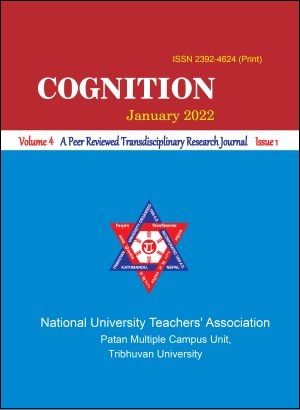Double Consciousness in Anita Desai’s The Village by the Sea
DOI:
https://doi.org/10.3126/cognition.v4i1.46440Keywords:
consciousness, contradiction, Orientalism, HybridityAbstract
In the novel The Village by the Sea, the researcher explores the influence of double consciousness (hybridity) over Hari, the protagonist, who suspends between rural and urban culture. He is enslaved by the illusion of financial prosperity in his dreamland, Bombay. His illusion results from cultural hybridity—a by-product of postcolonial society. Hari and his poverty-hit family are the inhabitants of Thul—a village on the western coast of India. His family comprises of an alcoholic father, a sick mother (suffering from TB) and their four children, including his sister Lila. Hari and Lila are compelled to bear responsibility of earning bread and butter for their two younger sisters and mother whilst their father does not take their care. The study uses particularly Edward Said's Orientalism as theoretical modality as it argues that the colonial discourse defines the urban as being superior and the rural being inferior. Hari, the protagonist moves to the metropolitan city, Bombay as he thinks his economic prosperity is not viable in the countryside.




